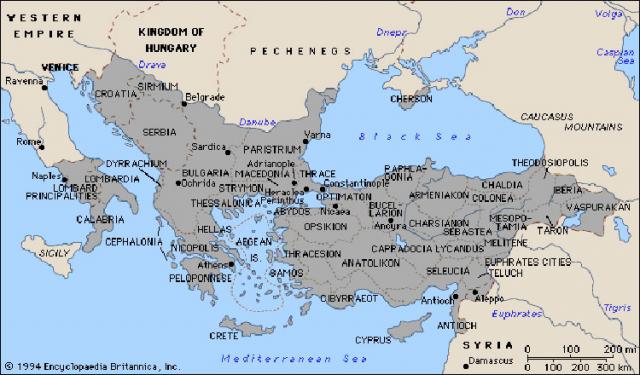
Has the scientific community found some new facts and hypotheses that would change our notion of the life and work of Cyril and Methodius?
The humanities are continuously developing and, although their findings are not as global as those of the exact sciences, it can be said that we are constantly adding new elements and details to the work of the two brothers. We have greatly enriched our knowledge of their translation work. It turns out that the facts about the translations, which are described in their biographies, are totally correct. It has been established, with the help of textology, that Methodius had really translated the Bible and traces of this translation are present in later manuscripts. Recently, new facts about the role played by Byzantine Emperor Michael III in the preparation of the mission of Cyril and Methodius have been widely discussed as well as new facts about the fate of their students in Bulgaria. Over the recent decades, a large number of newly discovered hymnographic works created in the towns of Pliska and Preslav with the direct participation of Cyril and Methodius' disciples have been published as well. The role of Byzantium and its missionary activity that had led to the creation of the Slavic alphabet has been increasingly emerging as well.
Why had the work of Cyril and Methodius failed to make its way to the Western Slavs and managed to reach the Bulgarian state?
In Bulgaria, the work of Cyril and Methodius had found the support of Bulgarian rulers, of Boris Michael and his son Simeon later. They had created excellent conditions for the development of literary activity and later for making the Bulgarian language the third liturgical language in Europe. This far-sighted policy had allowed other Slavic countries like Russia and Serbia to have a writing system in their own language, using the Bulgarian translations.
Why do you think we find it difficult to admit that Cyril and Methodius are Greeks?
St. Cyril and Methodius have so deeply penetrated our ethnic self-consciousness that we actually do not ask what they are, we automatically take them for Bulgarian saints and, respectively, for Bulgarians. However, this is a subsequent reflex formed during the Bulgarian National Revival. Every serious researcher is aware of the origin of the two Slav apostles. This does not diminish the importance of their work. It is just to the contrary. They are spiritual enlighteners of the Slavs and this fact is beyond the ethnic borders of Bulgarians, Poles, Russians, Serbs, Czechs.... It was just that the celebration dedicated to them was an official state holiday in Bulgaria alone, which is the true home of their work. And when I comment on the origin of Cyril and Methodius with my students, they are aware of the fact that, within this historical context, Byzantium was the most advanced country. It was an undisputed authority. For us, as Bulgarians, it is more important that the writing system created by Cyril and Methodius has preserved us as a nation over the centuries of our vicissitudinous history and Revival Paisij of Hilendar has rightly urged us: Bulgarians, know your people and language ... The language, the written language is the basis of national consciousness. This is what Cyril and Methodius have given us and we have preserved it and developed it.
Is their nationality important for the creation of the Slavic alphabet?
Of course, it is not. According to sources, Cyril was a brilliant linguist, polyglot. He was aware of the majority of the writing systems known at that time. He created a perfect alphabet, reflecting the phonetic characteristics of the language of the southern Slavs. Furthermore, Byzantium was a multiethnic empire and diversity was its daily round.
 How close are the Bulgarian and Greek languages?
How close are the Bulgarian and Greek languages?
They are as close as two neighbouring languages that had closely coexisted for more than a millennium. When Cyril was creating the writing norm of the Old Bulgarian alphabet, he used Greek syntactic structures and periods. A number of Greek words have been preserved in the translation of the Book of the Holy Scriptures. Some have survived and some have been replaced with Bulgarian words. The language of Bulgarian medieval literature is that of the Byzantine rhetoric, defined and adapted in compliance with the Bulgarian consciousness. However, Bulgarian writers have always had an awareness of what can and cannot be adopted.
What are the similarities and differences between the Bulgarian and the Greek alphabet?